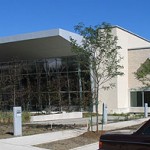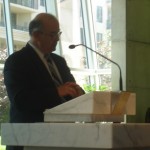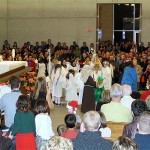I hope that all of us were really shocked and sadden by the senseless murder and wounding of the Moslem men at prayer in the Mosque in Quebec City last Sunday night. How explain such acts of violence? What brings people to such hatred of others that they will take someone else’s life – even in God’s name? Yet that’s what we’ve been doing for centuries. There just seems to be so little tolerance for men and women who believe differently than us. Not only must we pray for the good men who died or were wounded last Sunday night, we must pray for the man who committed this crime and likeminded persons whose minds are twisted by bigotry and intolerance.
Would it be safe to say there is an insidious spirit of suspicion and hostility towards the stranger, the outsider, that is alive and well in our midst? It’s called xenophobia, the fear of the stranger.
Do our readings for today’s Mass have anything to say about the violence of last Sunday and the intolerance from which it sprang?
At this Mass can we pray that our personal yoke of bigotry, our personal yoke that burdens us with unwillingness or an inability to accept and respect other people for who they are and what they are be lifted from our shoulders? Can we pray that we be freed of the yoke that hinders us from seeing the good, the generosity that is found in the lives of men and women who live and believe in ways different from our own?
Or can we pray that the yoke that burdens us from appreciating the good things with which we are blessed and the potential we have to be what Christ calls us to be, a light that enlightens, a salt that flavors our own lives and the lives of others. Can that yoke be lifted be from our shoulders?
It is one thing to lift the yoke of oppression from another’s shoulder it is another thing to yoke ourselves to other men and women of other faiths and other cultures, either through religious affiliations or secular organizations and work with them to feed the hungry, clothe the naked, house the homeless, welcome the stranger, bring justice to men and women oppressed by unjust social and economic systems
If we are honest with ourselves, we will discover that our Christian faith functions little if at all in our political life. The talk is talked, but the walk is not walked. Lip service is paid, but almost every other kind of service is paid to our cultural dogmas not our faith dogmas.
We are meant for better things. In the gospel Christ challenges us to be a salt of the earth. Christ calls us to live in such a way that we bring a positive flavor, a zip, a tang to our relationship with other people that lets them know they are appreciate and admired and accepted into our lives. Christ challenges us to be blazing lights, shining examples of men and women who are open hearted, welcoming, accepting and respecting of men and women different from ourselves.
Through these two images of light and salt Christ calls us to live the great commandment – love one another as I have loved you.
In this Mass we celebrate and through the Eucharist we receive may we graced to be the light and salt our church and our world needs so badly.
 Founded by St. Paul of the Cross, every Passionist takes a special vow to spend his or her energies in promoting remembrance of the sufferings of Jesus, the memory of the Cross, and reflection of the meaning of the Cross for the world.
Founded by St. Paul of the Cross, every Passionist takes a special vow to spend his or her energies in promoting remembrance of the sufferings of Jesus, the memory of the Cross, and reflection of the meaning of the Cross for the world.




